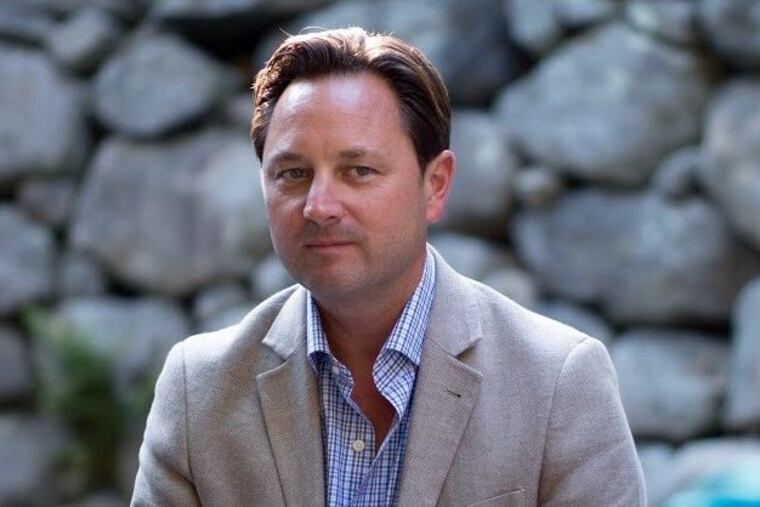Triple bottom line? Make money and make an impact with ESG investing
Jason Ingle of Closed Loop Capital, a venture capital fund in Radnor, invests in start-ups like BeyondMeat when the plant-based meat company was "at a valuation in the tens of millions, in 2012." Recently, Tyson took a 5 percent stake.

If you seek profits on a "triple bottom line," you're what's called an impact investor. That means you're interested in putting money into companies that generate positive social and environmental impact plus financial returns.
The investment strategy is alive and well in Philadelphia: just ask Jason Ingle of Closed Loop Capital, a venture capital fund in Radnor investing in agriculture technology start-ups such as BeyondMeat. Closed Loop founders James Macon and Ingle, a great-great grandson of Henry Ford, invested in BeyondMeat when the plant-based meat company was valued at tens of millions of dollars in 2012.
More recently, General Mills and Tyson, both giants in the mainstream food industry, invested in BeyondMeat, as did the actor and activist Leonardo DiCaprio, Twitter cofounders Biz Stone and Evan Williams, former McDonald's CEO Don Thompson, Honest Tea founder Seth Goldman, the Kleiner Perkins venture capital firm, and the Humane Society of the United States.
How does Closed Loop make money? Invest at the start-up level and wait for industry to catch up.
"Tyson is an old-school meat company, and has acquired a 5 percent stake in BeyondMeat that valued the start-up in the hundreds of millions of dollars," Ingle said. "That's how we exit — get the attention of the big traditional companies and make money while investing in something we believe in."
Other local agricultural giants like Camden-based Campbell Soup are also "disrupting from the inside."
"They left the Grocery Manufacturers Association, and that was profound," Ingle said. "I would also consider Campbell's now an ESG [enrivonment, social, and governance] investor."
Separately, Ingle is one of 100 or so founding members of a group that calls itself "the ImPact." Other members include Liesel Pritzker Simmons, an heir to the Hyatt Hotels fortune, and Justin Rockefeller, great-great-grandson of John D. Rockefeller.
"No amount of philanthropy or foreign aid will solve the problems the world faces," said ImPact CEO Abigail Noble. "We need to use businesses and capital markets," she told Money magazine.
For Main Street investors, there are mutual funds that invest based on ESG, such as the Arabesque Systematic USA Fund (ASUIX), launched in May 2017, and the Pax Ellevate Global Women's Index Fund (PXWIX). Kelly Coyne, vice president of Global Women's Strategies at Impax Asset Management, is responsible for national sales and marketing of the Pax Ellevate Global Women's Index Fund.
The fund's top holdings look much like other traditional mutual funds: Microsoft, Texas Instruments, KeyCorp, Facebook, and Principal Financial Group. Why those companies? "There's an optimization process where we give a larger weight to those with the best gender ranking," Coyne said.
#MeToo marketing
No mistake: 2017 was also the year some massive asset managers voted against certain companies where boards consisted only of men. PriceWaterhouse, in its most recent corporate director survey, noted "gender diversity on corporate boards has also become a clear priority for institutional investors in 2017." State Street also launched the exchange-traded fund SSGA Gender Diversity Index (symbol: SHE), which tracks U.S. companies that are leaders in advancing women through gender diversity on their boards of directors and in management.
Coyne and others in Philadelphia's ESG investing world will congregate here at an April 26-27 event, the "Total Impact Conference," hosted by Good Capital and ImpactPHL. For more information and tickets to the event, which takes place at the Cira Centre, visit Good Capital Project's website: https://www.goodcapitalproject.com.
Other ESG avenues: Philadelphia hosts the most active chapter of Investors' Circle, an early-stage impact-investing network. The Sustainable Business Network, founded here more than a decade ago by local trailblazer Judy Wicks, serves as a national model for promoting triple-bottom-line companies, as do B Corporation, GoodCompany Ventures, the Reinvestment Fund, the Wharton Social Impact Initiative, the Philadelphia chapter of Net Impact, and private foundations such as Barra, Kind, GreenLight, and William Penn.
Tracy Maeter, global investment specialist at JPMorgan Private Bank Philadelphia, said ESG has been a "topic of increasing interest from both institutional and private clients, and as an industry the global sustainable investment market reached $23 trillion at the start of 2016, or approximately a quarter of all professionally managed assets globally."
However, "every discussion is different, as the interpretation of ESG is very personal. In the early days negative screening was the rather blunt instrument that was used by investors to restrict holdings in companies and industries that did not meet their ethical or environmental priorities," she said. Now the conversation includes nuanced screening and proactive selection, thematic investing such as water, alternative energy, education, or health care, "as well as impact investing which seeks to intentionally generate positive social and environmental impact alongside financial return."